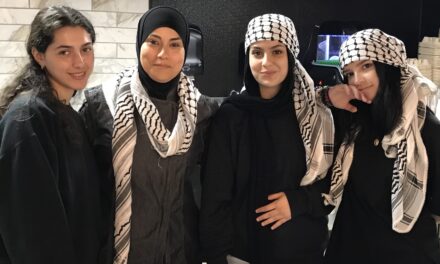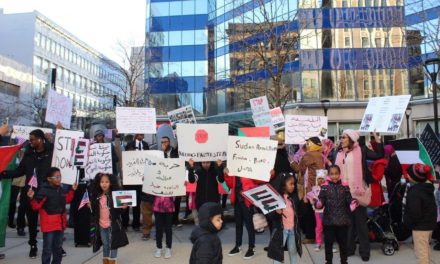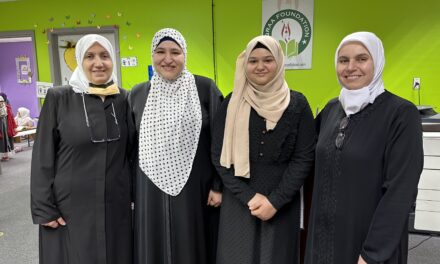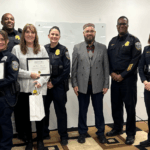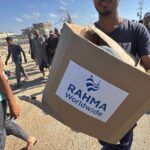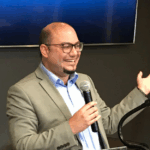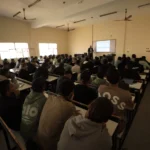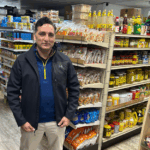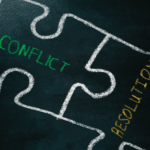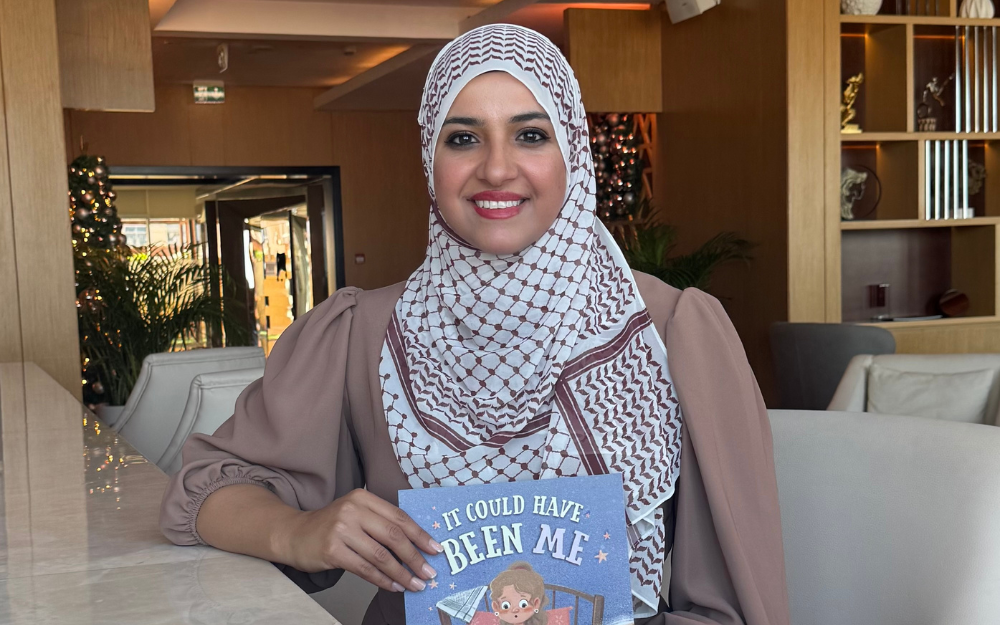
Photos and stills courtesy of Lina Abdulkarim
Lina Abdulkarim’s first book, It Could Have Been Me, was among 20 books worldwide to be longlisted for the Middle East Monitor’s 2025 Palestine Book Awards.
Ask children’s author and filmmaker Lina Abdulkarim where she’s from and she answers by describing her family.
“I come from a Palestinian household,” she says.
Like Baba, a character in her 2024 book and new short animated film, both titled It Could Have Been Me, she knows, “Palestine isn’t just a place … It’s in the food we share, the clothes we wear, the way we laugh, love and the traditions we hold on to.”
“It’s in here,” Baba says, gesturing to his heart. “As long as we remember, it will never be lost.”
It Could Have Been Me was published by Lina’s Kalam Books, Abdulkarim’s publishing venture, “born out of a mission to address the profound questions children often ask about the world.” It aims to “tackle tough subjects with sensitivity and depth” and encourage children to see the world “through a lens of empathy and understanding,” its mission statement says.
Since its publication in September, It Could Have Been Me earned 4.9/5 stars on Amazon, 5/5 stars on Goodreads and positive reviews from Kirkus Reviews and BookLife.
What’s more, it’s among the 20 works longlisted in the Middle East Monitor’s Palestine Book Awards, an annual literary award for the best new books in English that offer insight into any aspect of Palestine and the Palestinians. The list includes academic research, fiction, memoir, poetry and children’s literature from around the world. MEM, a not-for-profit media monitoring organization, founded the global awards in 2012.
Muslim Women’s Coalition’s special event for children and families
The Muslim Women’s Coalition will host Abdulkarim Aug. 2 for a special Children’s Summer Program event that includes a private screening of the 12-minute film, an author talk, book signing, craft activity and Palestinian snacks.
Recommended for children 6 and over, it will be held Saturday, Aug. 2, from 2 to 3 p.m., at the Islamic Resource Center, 5235 S. 27 St., Greenfield.
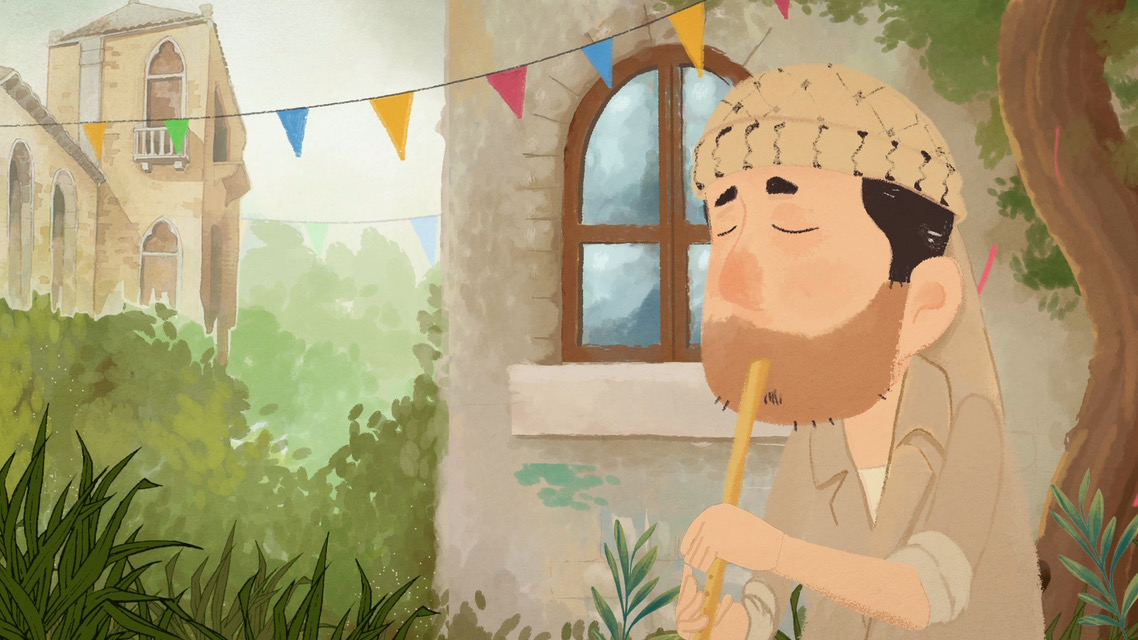
The short, animated film “It Could Have Been Me” begins in Gaza before the war “took all the color from our lives.”
A conversation with the author/filmmaker
In an interview Tuesday over Zoom, the Wisconsin Muslim Journal spoke with Abdulkarim, who was in Dubai, where she lives with her husband and two children. The conversation addressed her life, her debut children’s book, the film it inspired and her upcoming visit to Milwaukee.
Here are the highlights (paraphrased):
Tell us about your life.
I’m one of seven children from a Palestinian household.
I was born in Jerusalem when my parents were visiting back home. I’m actually from the West Bank, from Beitin, near Ramallah. Both of my parents and our ancestors are from there.
I was raised back and forth between the West Bank and Wisconsin. I was in the U.S. until second grade, the time of the Oslo Peace Accords. (Abdulkarim’s parents Surayya and Mohammed Abdulkarim are long-time Milwaukee residents.)
Things were more peaceful. Our visit of three months turned into six years, from second to eighth grade. They were literally the best years of my life.
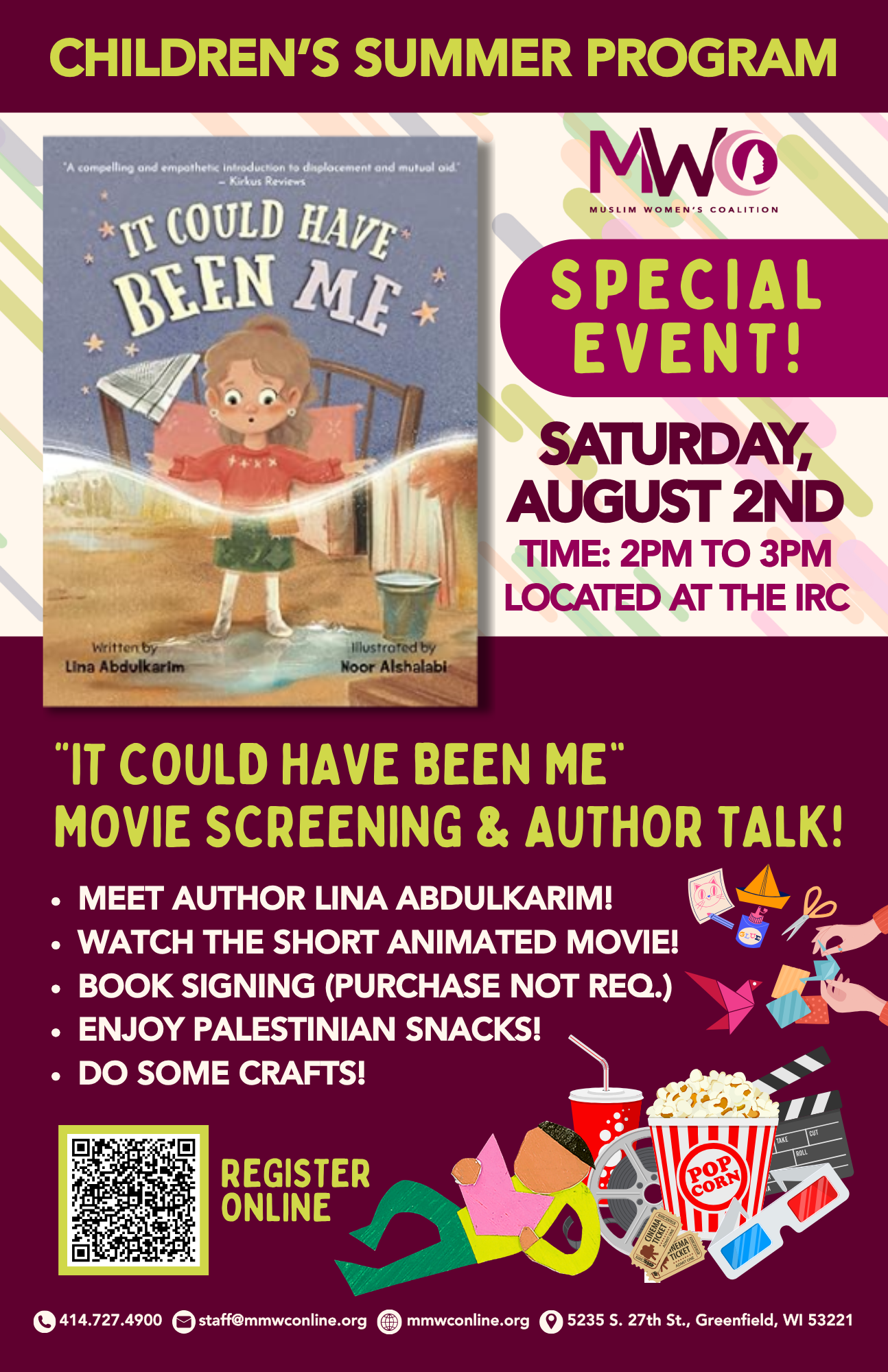
When we came back to Wisconsin, I went to an all-girls Catholic school, St. Joan Antida. That is a great school. I was always interested in cultures and other religions.
I’m very interested in healthcare. In high school, I shadowed a pharmacist and others in the healthcare industry. My first job was as a pharmacy tech.
I met my husband in college through the Muslim Student Association at the University of Wisconsin-Milwaukee, where I studied health sciences. We were in MSA with Rami Bleibel (now an ISM imam).
We got engaged at 22 and married at 23. We lived in Wisconsin for two years. I worked at Froedtert Hospital as an MRI tech. It was a lovely time for me. I loved my coworkers. I loved what I did. I felt I made a difference.
Then my husband’s work in finance took us to Dubai. It was supposed to be for six months but ended up being 10 years. His work also took us to Switzerland and back to Dubai. After he finishes his current assignment, we plan to move back to Wisconsin.
My husband has such a crazy schedule and travels quite a bit. We both can’t be doing that. One of the things I like about writing is that it works well with my family life.
How did you become a writer?
I’ve always loved reading. I journaled my whole life. A lot of stories are in me but I never considered myself a writer. I didn’t know how to start.
Recent events in Gaza made me feel a weight on my shoulders. I wanted to use my voice in any way that could make a difference. I could tell a story that’s authentic, teach lessons of empathy and help us put ourselves in other people’s shoes.
At the same time, I was having nightmares about my own children. In my dreams, they were in Gaza. When you’re a Palestinian, it feels so close.
I noticed my own children were disconnected with the situation in Gaza. Of course, I want them to be carefree, as children should be, but I want to teach them to use their voices for good and to use their privilege for good.
I decided to write for my own children to help them see they could make a difference in other people’s lives. Even just being somebody’s friend can go a long way. My children are 11 and 7. It felt it’s time to write this story. My children definitely inspired me to write something they and others could benefit from.
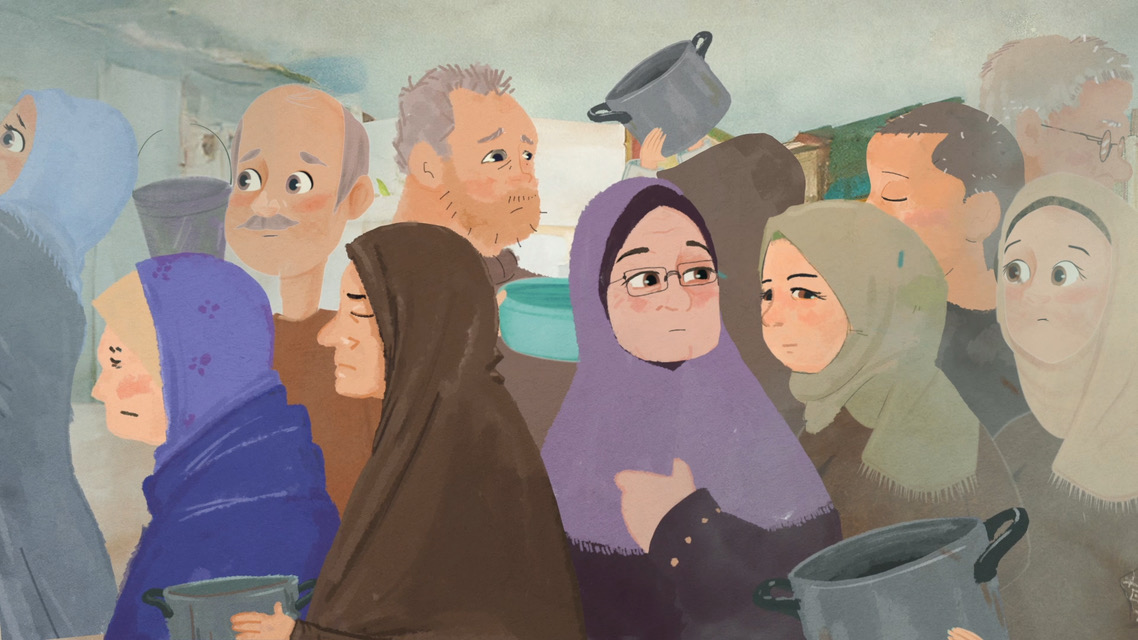
Illustrator Noor Alshalabi subtly shows the suffering in Gaza in muted, natural tones.
Isn’t the situation in Gaza a difficult one to discuss with children?
I believe you can explain things to kids in age-appropriate ways, like why I don’t get them McDonald’s anymore. Or why I won’t buy my son a Coke, his favorite treat, even once in a while.
I try to teach them we can do good by being kind to others and by not supporting things that support bad things. It’s important to me to start teaching them these things at a young age.
I didn’t try to sugarcoat it. A lot of people told me that if my book didn’t have some of the imagery, it would have been more mainstream. But I want it to be authentic. I want it to be true. And it has been well received.
Although I was inspired by everything happening in Palestine, my story is universal at its core. It would be a better world if we all put ourselves in other people’s shoes and to realize it is just fate that we aren’t in those unfortunate circumstances.
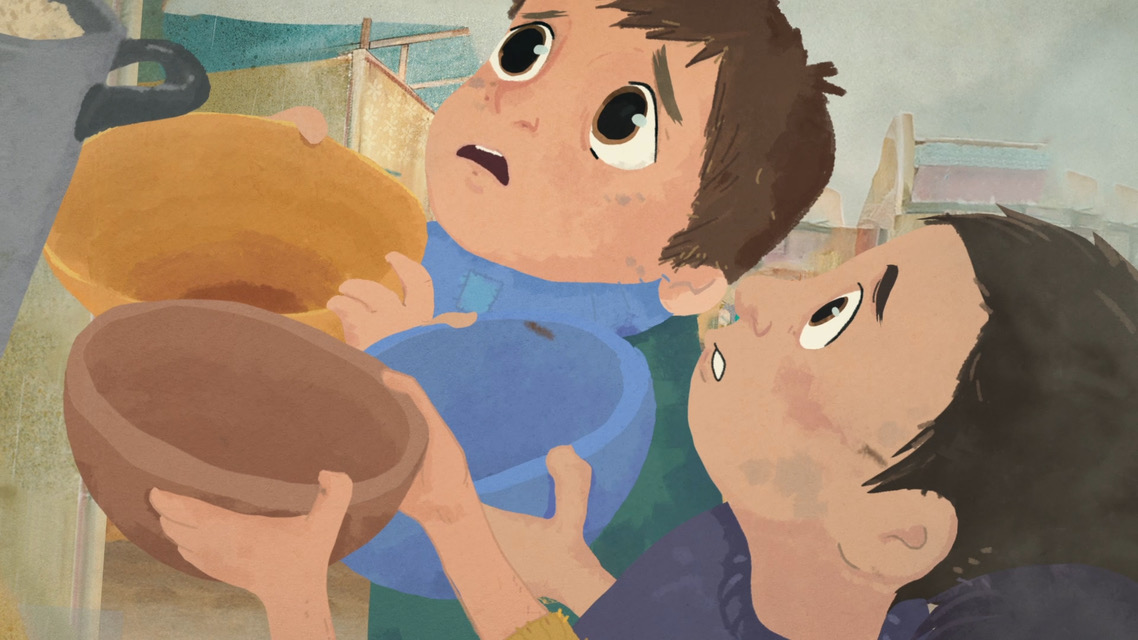
Lina Abdulkarim dedicated “It Could Have Been Me” to “the extraordinary people of Palestine, especially those in Gaza whose unwavering strength and courage in the face of adversity continue to inspire us all.”
Why did you decide to self-publish?
This is an important story to get out now. It can take years to go the traditional route. I also wanted to retain full creative control. Of course, now I have more to prove.
With my second book, I am not in as much of a rush. I may go the traditional route. Self-publishing involves a lot of work. You’re in charge of everything from marketing to distribution. You really have to put yourself out there. And I don’t have all the connections with libraries and distributors traditional publishers have.
How long did it take to finish?
About seven months. I went through several drafts, wanting to make it better and better.
Congratulations for having your debut book longlisted for the Palestine Book Awards. How do you feel about it?
To be recognized amongst all those amazing authors is a huge accomplishment for me. I’m really honored and I’m so proud. It was definitely my highlight of the year.
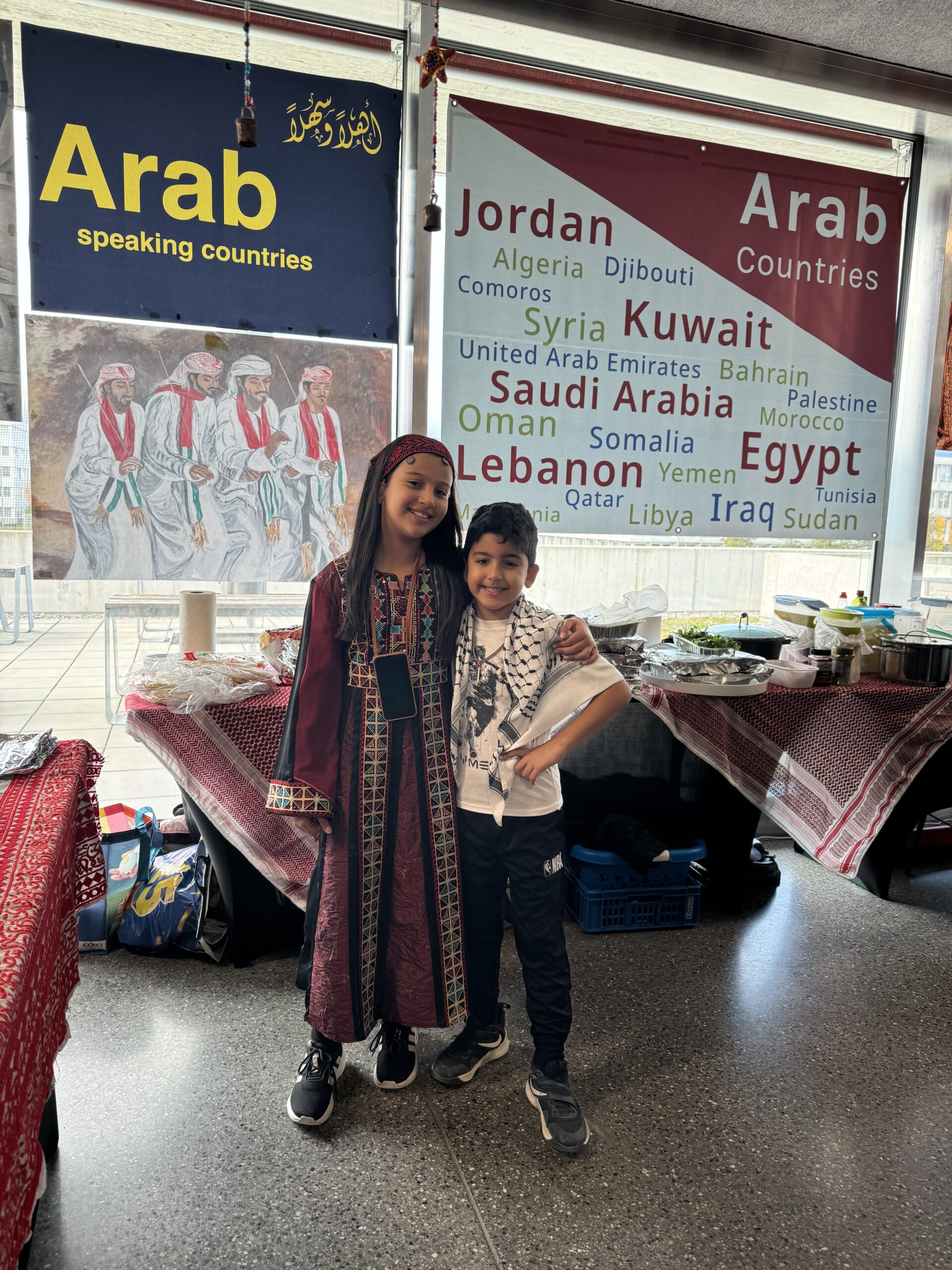
Lina Abdulkarim’s children Jumanah, 11, and Jibreel, 7, Elsayed inspired her to write. Jumanah voiced Yasmeen’s character in her short film “It Could Have Been Me.”
You also produced the film yourself. Why?
Because the situation is so dire, I wanted to get the message out there. I put my everything into this.
I was very purposeful and intentional about who I worked with. I wanted it to be a story told authentically by Palestinians. It was so important to me to work with somebody who feels that experience of displacement personally.
We really delved into the displacement and war aspects and how they are affecting children in Gaza. I also wanted to support Palestinian artists, especially those from Gaza. I’d rather my money go there.
I got in touch with Mohammed Elmashhrawi, the lead animator, who was displaced from Gaza in late 2023. Now he is in Egypt. Esraa Ayyad, the assistant animator, is still in Gaza. She was helping while literally under those crazy, difficult circumstances.
Illustrator Noor Alshalbabi is a Palestinian Jordanian. I love her illustrations. They are absolutely stunning. They are all so talented.
Have you started another book?
I have so many drafts, so many ideas, in my head. I want to write books that are conversation starters. That’s why I call my site “Lina’s Kallam Books.” (Kallam is an Arabic word that means “speech,” “discourse” or “word.” It also means “pen.”)
I want my books to be stories children can discuss with their parents and to start conversations about deeper topics.
You’ve invested all this time, effort and money. Do you think your book and film can make a difference?
When people tell me, and if they tell you, this isn’t going to do anything, don’t listen to that noise. If you have pure intentions, if you’re trying to do something good, don’t let anybody stop you.
Even if one person watches the film or reads the book and benefits from it, that’s enough. It starts with one person.
That’s the theme of the book and the movie—you’re never too young and it’s never too late to make a difference. That’s the message I want to get across.
We can all contribute in some way; we can all make a difference.

